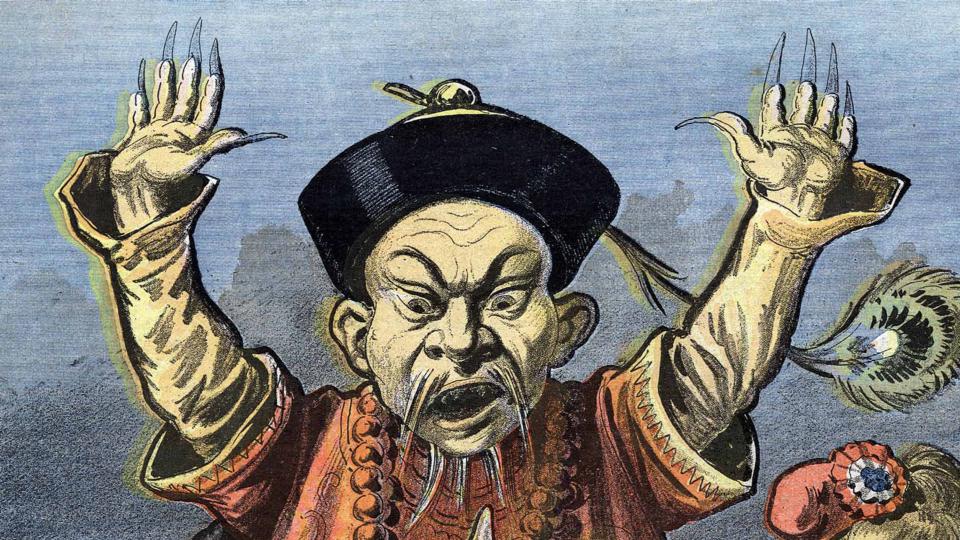
Originally written for Canadian Dimension.
The Trudeau government has moved to expel Chinese diplomat Zhao Wei on the grounds that he has been involved in targeting members of Conservative MP Michael Chong’s family who live in Hong Kong. The Globe and Mail informs us that a 2021 CSIS report had suggested that Zhao Wei was collecting information on Chong’s family after the MP introduced a motion in February 2021 to have the House of Commons declare China’s persecution of the Uyghurs a genocide. The intelligence agency report also called Beijing the “foremost perpetrator” of foreign interference in Canada.”
The Globe and Mail bases its claim that Chong’s family has been singled out on “a national-security source” that it is refusing to reveal. For his part, Chong gave no indication that his family members have actually faced any interference. He simply noted that he has refrained from making contact with them “out of an abundance of caution.”
Judging from the Globe and Mail’s account of the report at the centre of this storm, CSIS played up the notion of unbridled Chinese interference, but rather tellingly pointed out that “China sees Canada as a key target as it’s a member of the Five Eyes intelligence-sharing alliance, which also includes the United States, Britain, Australia and New Zealand.” Evidently China may not have a monopoly when it comes to interference activities.
It is clear that CSIS and the Conservatives, with the assistance of some sections of the media, have been pressuring the Liberals to take their belligerence towards China up a notch. What is striking about the allegations that led to this quite serious act is that they come from intelligence sources that by definition can’t be verified. We don’t know what Chinese officials have or haven’t been up to. We only know what CSIS wants us to believe.
Part of a pattern
The present incident didn’t come out of the blue. A sustained campaign is underway to promote the notion of a malevolent Chinese threat. A few months ago, we were being encouraged to scan the skies for menacing ‘spy balloons’ being sent over by Beijing. Vigorous efforts were made to shoot down these objects and they became the story of the hour.
Once it became clear that the balloon scare was full of hot air, the issue of Chinese interference in Canadian elections and internal political affairs emerged as the next sinister development. With a renewed supply of uncorroborated assertions from CSIS operatives to fuel the operation, Global News led an effort to present elected Canadian politicians with Chinese family backgrounds as being “part of a Chinese foreign interference network.”
On the strength of these flimsy allegations, the NDP quite shamefully put forward a motion in the House of Commons calling for a public inquiry into electoral interference. Liberal MP Han Dong was forced to remove himself from his party’s caucus and a Tory MPP in Ontario, Vincent Ke, suffered the same fate. It shouldn’t be lost on us that these developments raise the ugly and disturbing trope of the “enemy within” that, once unleashed, tends to take on a life of its own.
That such determined efforts are being made to focus our attention on the supposed threat of Chinese interference raises questions about how we should view this development and what our response should be. It is first of all necessary to understand that the escalating hostility towards China is driven by considerations of global rivalry. Canada is a junior partner in a US-led alliance wary of the growing power of China. Although the US is still the dominant economic power, its main rival has closed the gap in recent years to an extent that points towards the end of US hegemony, with the growing productive power of China taking the form of a challenge to the “traditional dominance (of the US) as a trading partner for other countries around the world.”
It must be stressed that the US, with Canada’s full support, is actively raising the stakes in challenging its rival. Canadian warships have joined with US vessels in sailing provocatively through the Taiwan Strait, which is claimed by China as territorial waters. Regardless of the merits of this claim, it is hard to imagine the Canadian government or the media agreeing that a fleet of Chinese warships off the BC coast has every right to access international waters as they wish.
Last December, Foreign Affairs Minister Mélanie Joly announced that Canada would allocate $400 million in military support for the Indo-Pacific, increase its naval presence and post more military attachés across the region. These Canadian actions are but part of a much larger US-led effort to build capacity for armed conflict with China.
There are many countries in the world that would count themselves lucky if the interference they experienced at the hands of Canada were limited to a few balloons overhead and a bid to influence some elected representatives. The people in Afghanistan who lived under an occupation that Canada was part of would likely feel this way. So to would those in Haiti and Honduras, whose countries brutal regimes imposed by means of coups carried out with the help of Canadian governments. Canada’s role in establishing the Lima Group in an effort to promote regime change in Venezuela was a veritable case study in interference techniques.
Racist backlash
Anti-Chinese racism has deep historical roots in this country and the present effort to whip up war fever will undoubtedly revive this ugly legacy. Indeed, during the pandemic, hostility towards Chinese people in Canada surged. As The Martlet reports, “Data from the Vancouver Police Department shows a 717 per cent increase in hate crimes targeting Asian Canadians from 2019 to 2020.” A survey of Chinese people, also conducted in Vancouver during this period, found that “Half of the participants in the study also reported being “called names, made fun of and insulted” during the pandemic.” Fomenting anti-Chinese sentiment will inevitably produce similar results.
In February, when the spy balloon hype reached its peak, former Tory Defence Minister Peter MacKay waded into the fray to opine that the floating threat to our collective safety showed that “Canada must prioritize modernizing its military in the face of growing incursions from China and Russia in the Arctic.” As the austerity agenda compromises health care systems and degrades public services, we are being asked to accept the diversion of vast resources into a military build-up and the pursuit of a global rivalry that casts the shadow of war over the world.
The contention that working class people in Canada have no interest in the game of rivalry with China does not imply that we should take the side of the Chinese government. As I have previously argued, we should fully support the many acts of working class resistance that occur constantly in China. When oppressed minorities like the Uyghurs resist, we should side with them. The movements that have taken to the streets of Hong Kong to demand democratic freedoms must also be supported.
Working class internationalism doesn’t mean that the rivals of ‘our’ capitalists should be considered our friends. It means we must support struggles of workers and oppressed people everywhere, even when they take place in countries with governments Washington and Ottawa are at odds with. However, we have no stake in the contest over the share of global markets and profits; we should stand firm against arms build-ups and the escalating threat of catastrophic conflict. We must do all we can to counter the climate of war fervour being incited as rivalry intensifies.
The current anti-Chinese campaign has some very powerful backers and it is being pursued relentlessly. It is ugly, toxic and reactionary to the core and we need to build a united opposition to challenge and defeat it.
